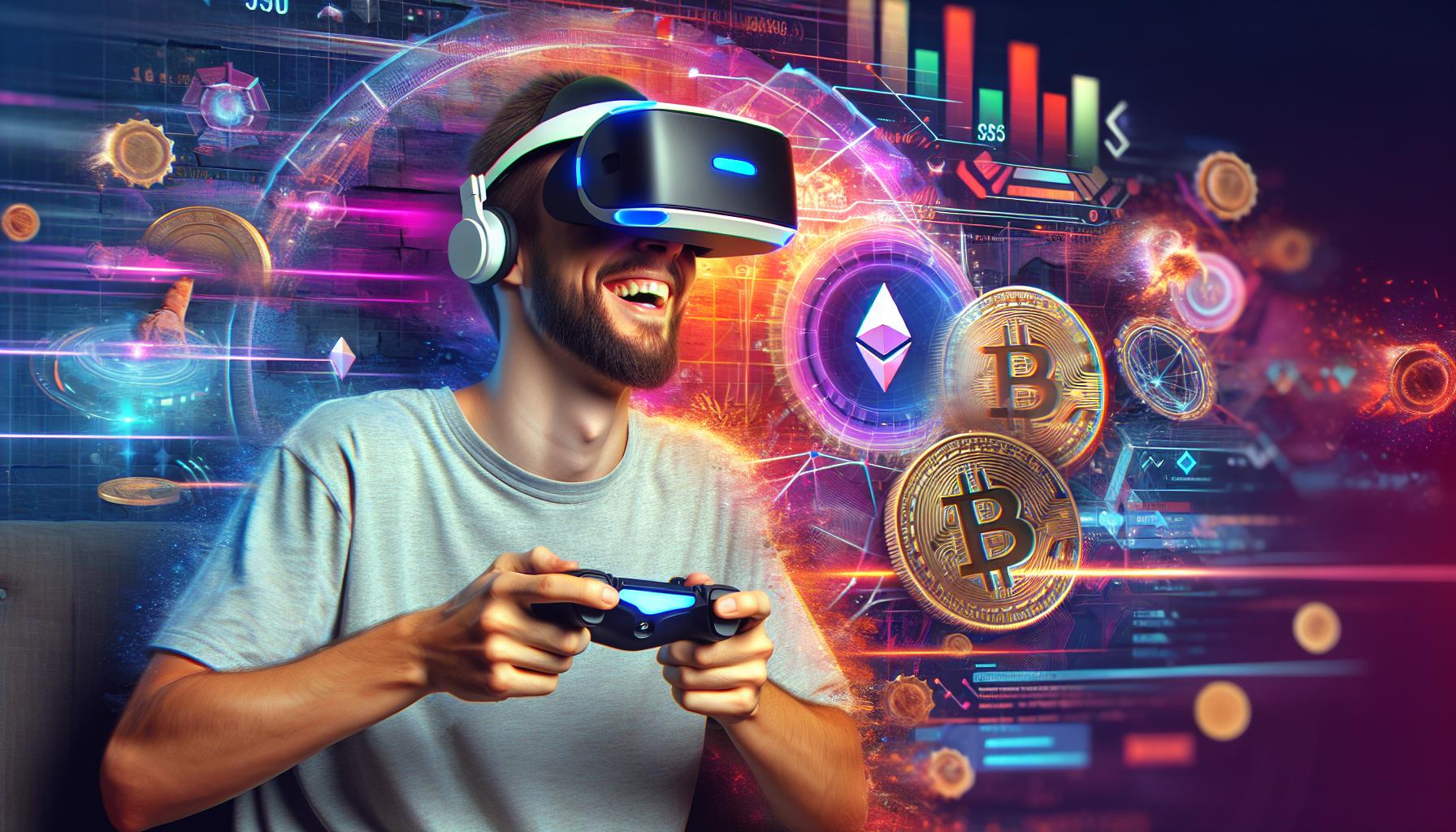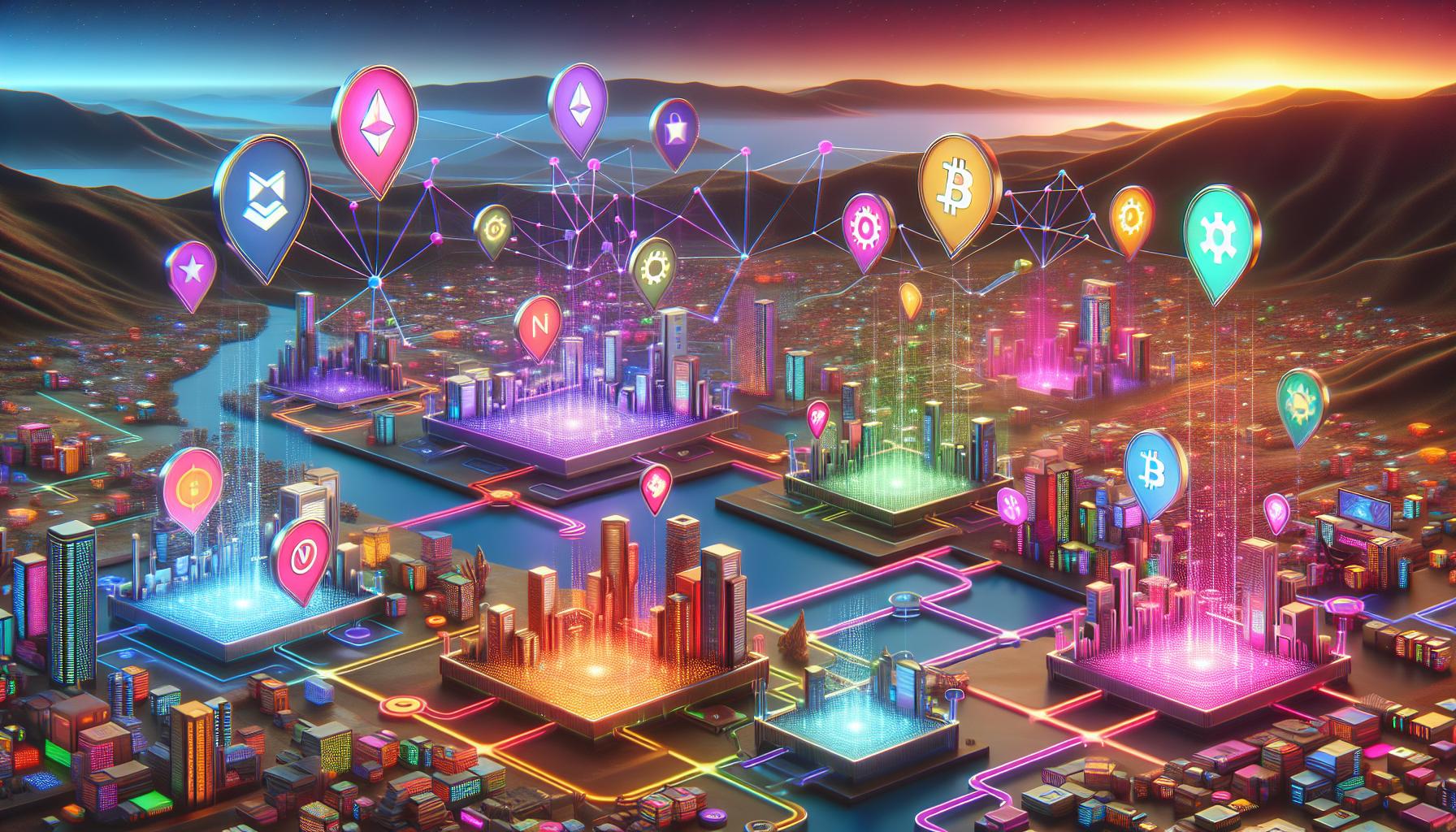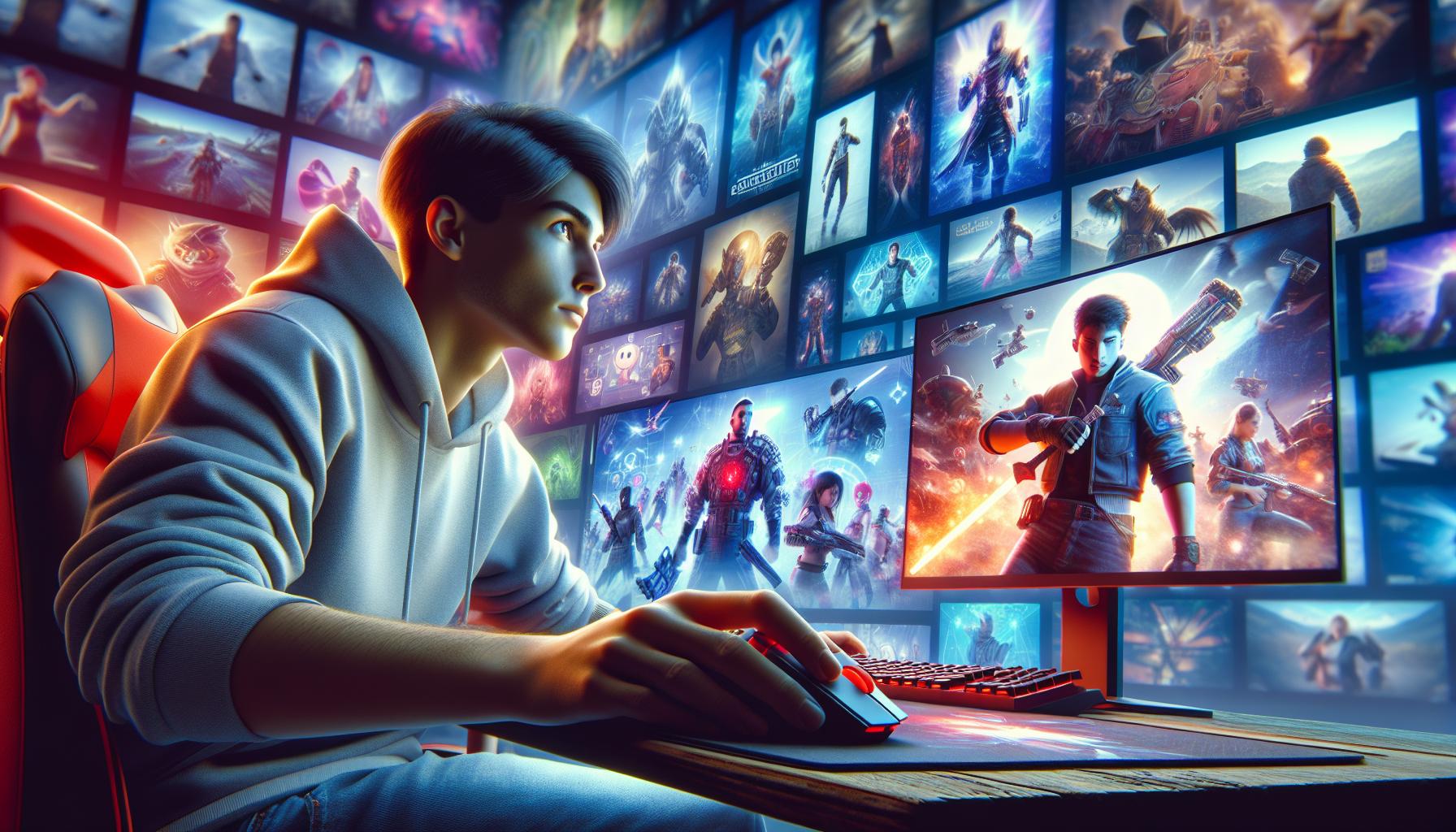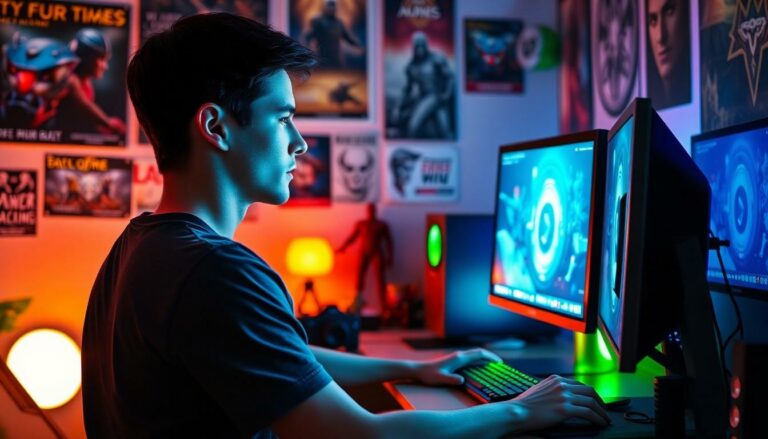The NFT gaming world is evolving faster than a speedrunner on caffeine, and it’s transforming the way players own, trade and profit from their virtual adventures. From pixelated pets to epic battle cards every digital asset now holds real-world value in this groundbreaking intersection of blockchain and gaming.
2023 has been a rollercoaster ride for NFT gaming enthusiasts. Major gaming studios are diving headfirst into the NFT pool while indie developers are crafting innovative play-to-earn mechanics that’ll make your traditional gaming experience look like Pong. With millions of dollars flowing through virtual marketplaces and new projects launching daily keeping up with the latest NFT gaming news isn’t just fun – it’s essential for anyone looking to stay ahead in this digital gold rush.
NFT Gaming News
The NFT gaming landscape continues to evolve with breakthrough innovations and significant market movements in 2023. Several established projects demonstrate sustained growth while new entrants reshape player expectations.
Top-Performing NFT Games This Month
Axie Infinity maintains its position with $850M in trading volume through October 2023. Gods Unchained attracted 125,000 active players generating $12M in NFT sales. Illuvium’s land sale success resulted in $72M revenue within 48 hours. The Sandbox experienced a 45% increase in daily active users reaching 350,000 unique wallets. Splinterlands dominates the play-to-earn card game segment with 400,000 monthly active players.
| Game | Trading Volume | Active Users |
|---|---|---|
| Axie Infinity | $850M | 800,000 |
| Gods Unchained | $12M | 125,000 |
| The Sandbox | $45M | 350,000 |
| Splinterlands | $28M | 400,000 |
New Game Releases and Announcements
Star Atlas launches its galactic marketplace featuring 3D spaceship NFTs. Gala Games introduces Champions Arena with cross-platform compatibility. Ubisoft reveals plans for NFT integration in upcoming Assassin’s Creed titles. Epic Games partnered with Mythical Games to create blockchain-enabled collectibles. Polygon Studios backs 5 new NFT gaming projects with $100M development fund. MetalCore Foundation opens beta access to its mechanical warfare game featuring tradeable robot parts.
| Developer | Game | Launch Date |
|---|---|---|
| Star Atlas | Galactic Marketplace | Oct 2023 |
| Gala Games | Champions Arena | Nov 2023 |
| Ubisoft | AC Nexus | Q1 2024 |
| MetalCore | Open Beta | Dec 2023 |
The Rise of Play-to-Earn Gaming
Play-to-earn gaming transforms traditional gaming economics by enabling players to earn cryptocurrency tokens through gameplay. This model creates a sustainable digital economy where in-game achievements translate to real-world value.
Most Profitable P2E Games
Current market data reveals the top-earning play-to-earn games across multiple blockchain platforms. Axie Infinity leads revenue generation with $3.5 million daily player earnings through breeding tokens AXS tokens. Decentraland players earn an average of $1,500 monthly through virtual real estate trading MANA tokens. The Sandbox generates $850,000 in daily trading volume with players profiting from land sales SAND tokens. Splinterlands card traders earn $400 daily through tournament winnings DEC tokens. Gods Unchained competitive players generate $2,000 monthly through card pack trading GODS tokens.
Economic Impact on Players
Digital asset ownership creates significant income streams for dedicated players across global markets. Players in Southeast Asian countries earn $500-$1,000 monthly through NFT gaming activities. Professional gaming guilds distribute 70% of earnings to their scholarship players. The play-to-earn model supports 25,000 full-time players worldwide. Trading volumes across NFT gaming marketplaces reach $2.5 billion monthly. Player-owned assets appreciate 35% on average through seasonal gameplay events. Scholarship programs enable new players to start earning without initial investment.
Major Gaming Studios Entering the NFT Space
Traditional gaming powerhouses embrace blockchain technology through strategic NFT integrations. Industry leaders accelerate their entry into Web3 gaming with substantial investments across multiple projects.
Notable Partnerships and Collaborations
Square Enix partnered with Polygon to launch NFT-enabled collectibles for Final Fantasy, reaching 250,000 unique wallet interactions in the first month. Capcom teamed up with WAX blockchain to create tradeable Street Fighter character cards, generating $8.5 million in secondary market sales. Electronic Arts established a $50 million blockchain gaming division, collaborating with Immutable X for cross-game asset compatibility. Take-Two Interactive joined forces with Dapper Labs to develop NBA 2K series NFTs, attracting 180,000 collectors within 90 days.
Upcoming Projects Pipeline
Activision plans to release Call of Duty: Warzone NFT weapon skins in Q3 2024, featuring 10,000 unique designs. Nintendo registered blockchain gaming patents for Pokemon trading cards with verifiable ownership. Bandai Namco’s Dragon Ball Z NFT game enters public testing in February 2024, introducing fusion mechanics for character NFTs. CD Projekt Red announced a Cyberpunk 2077 expansion with integrated NFT apartments, launching alongside 15 exclusive districts. Sega’s Sonic NFT racing game combines traditional gameplay with blockchain-verified speedrun certificates.
NFT Gaming Infrastructure Development
NFT gaming infrastructure evolves rapidly with enhanced blockchain networks, development tools and security protocols. These advancements create robust foundations for scalable gaming experiences across multiple platforms.
New Blockchain Gaming Platforms
Layer-2 solutions transform NFT gaming with improved transaction speeds and reduced gas fees. Immutable X processes 9,000 transactions per second while maintaining zero gas fees for players. Polygon Studios supports 850+ gaming dApps through its dedicated gaming hub. Solana powers 125+ blockchain games with sub-second finality and $0.00025 transaction costs. The Ronin sidechain handles 250,000 daily active users for Axie Infinity with dedicated gaming infrastructure. Flow blockchain enables NBA Top Shot to process $780 million in NFT trades through its specialized gaming architecture.
Technological Advancements
Cross-chain bridges connect multiple gaming ecosystems through advanced interoperability protocols. The Chainlink VRF system generates verifiable randomness for 300+ NFT gaming projects. Unity’s NFT development kit integrates blockchain functionality into 45% of mobile games. Advanced smart contracts enable dynamic NFT attributes that evolve based on gameplay achievements. Unreal Engine 5 supports photorealistic NFT assets with nanite virtualized geometry. The MetaMask SDK processes 2 million daily gaming transactions through seamless wallet integration. Zero-knowledge proofs protect player assets while maintaining transaction privacy across 85 gaming platforms.
Regulatory Changes Affecting NFT Gaming
The regulatory landscape for NFT gaming continues to evolve with governments worldwide implementing new frameworks. These changes directly impact how games operate across different jurisdictions while establishing clearer guidelines for developers publishers.
Global Policy Updates
The European Union’s Markets in Crypto Assets (MiCA) regulation classifies gaming NFTs under digital asset frameworks requiring enhanced transparency in tokenomics models. Japan’s Financial Services Agency introduced licensing requirements for NFT gaming platforms processing over $5 million in annual transactions. South Korea implemented a 20% tax on NFT gaming profits exceeding $2,000 annually. Singapore’s Monetary Authority established a sandbox program allowing NFT game developers to test products under controlled conditions. The United States SEC provided guidance on NFT gaming tokens characterizing them as securities when tied to profit-sharing mechanisms.
Industry Standards and Compliance
Leading NFT gaming platforms adopted the Token Security Alliance (TSA) standards ensuring transparent smart contract audits user protection measures. The Blockchain Game Alliance established compliance frameworks requiring members to implement Know Your Customer protocols anti-money laundering checks. Gaming studios integrate Multi-Factor Authentication protecting digital assets worth over $100,000. OpenSea Rarible mandate identity verification for transactions exceeding $10,000. The NFT Gaming Federation introduced a certification program validating game economics security protocols player protection measures. Major platforms maintain insurance coverage protecting player assets from smart contract vulnerabilities unauthorized access.
The NFT gaming landscape continues to evolve at an unprecedented pace with major studios traditional gaming giants and innovative startups driving remarkable growth. The sector’s expansion is evident through massive trading volumes substantial player earnings and groundbreaking technological developments.
As blockchain gaming platforms mature and regulatory frameworks take shape the future looks promising for both developers and players. With enhanced infrastructure improved security measures and growing mainstream adoption NFT gaming stands poised to revolutionize digital entertainment and ownership.
The combination of play-to-earn mechanics technological innovation and strategic partnerships signals a transformative era in gaming. Players investors and developers can expect continued growth and exciting opportunities as the industry pushes forward into new frontiers.




